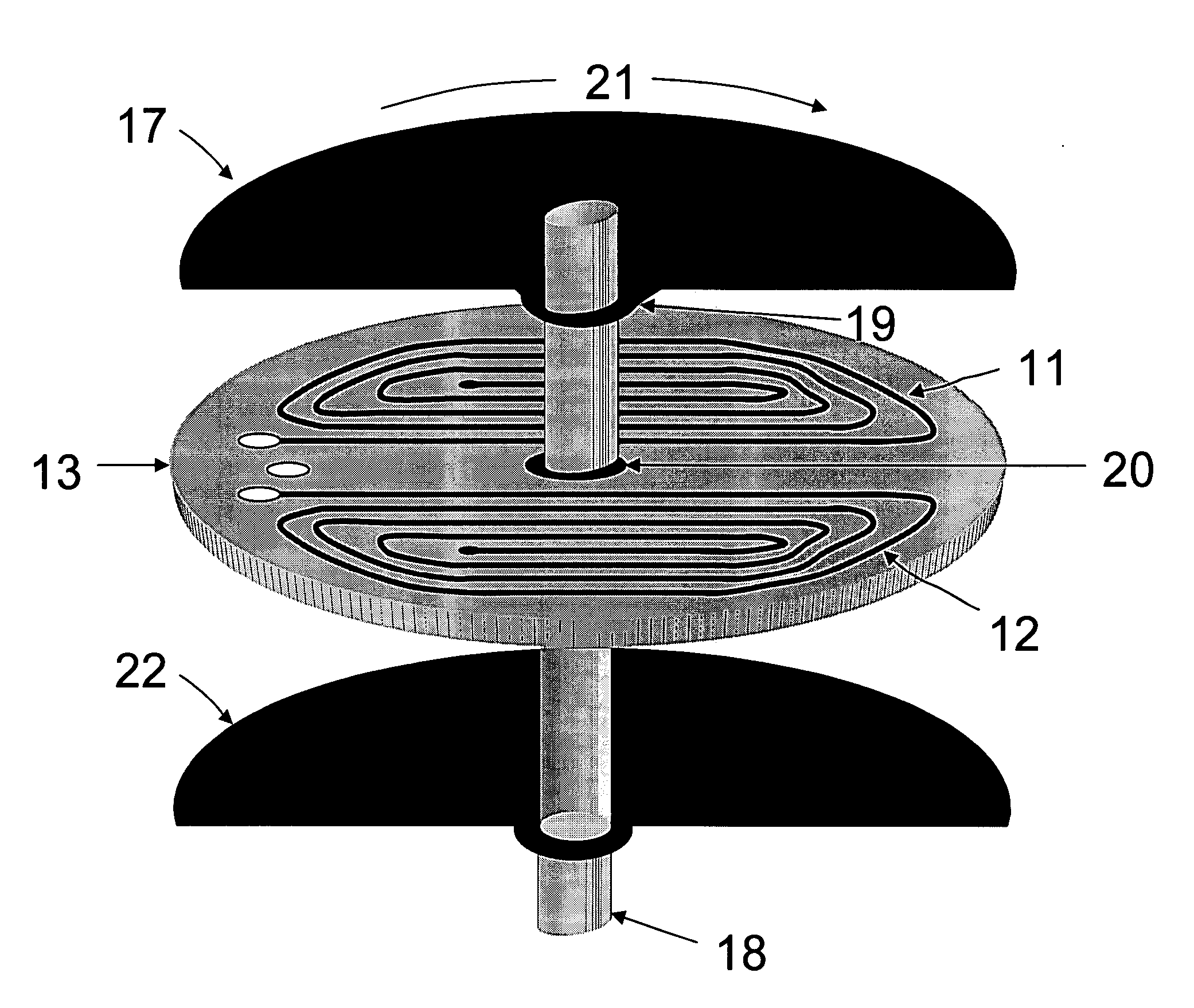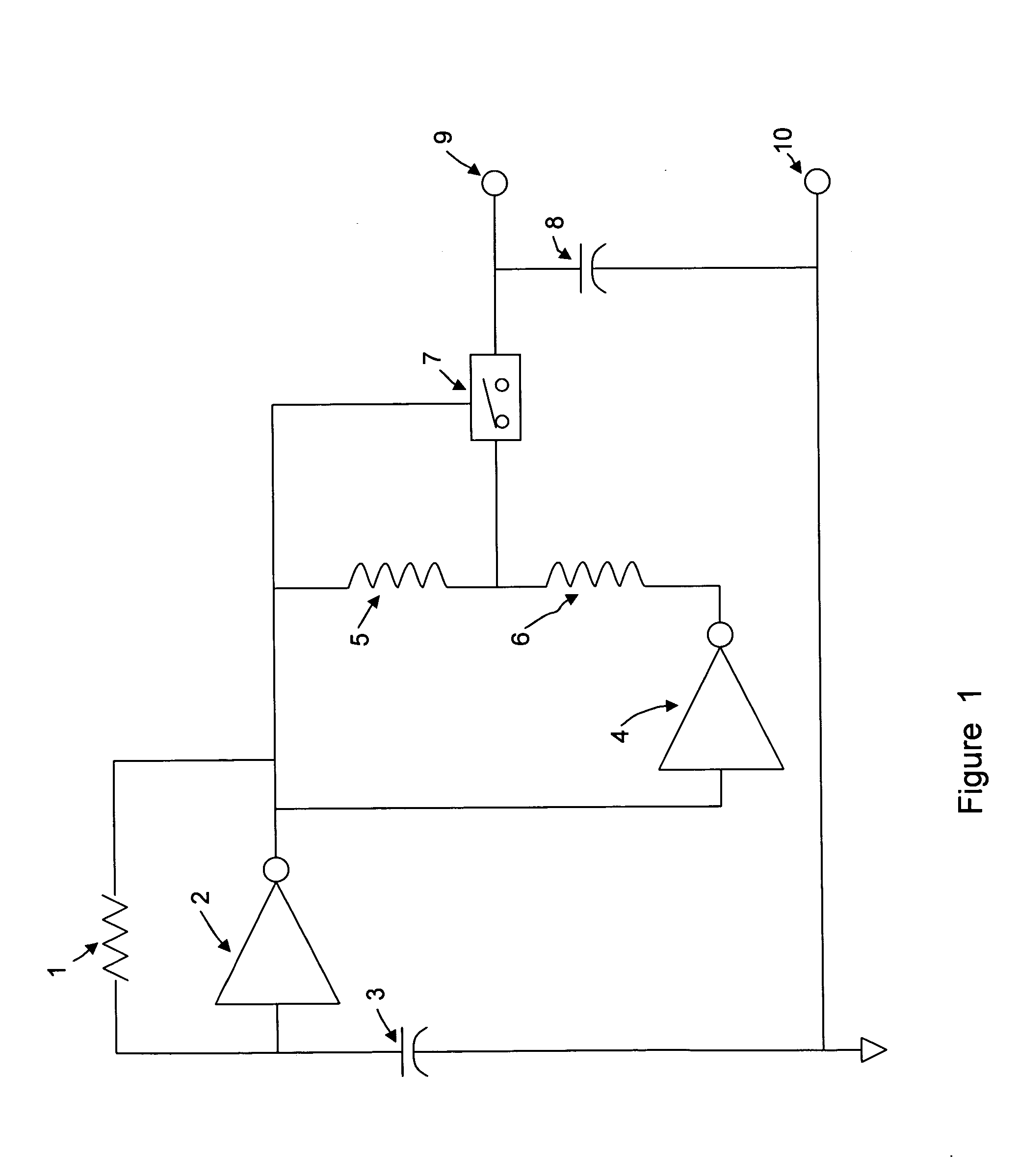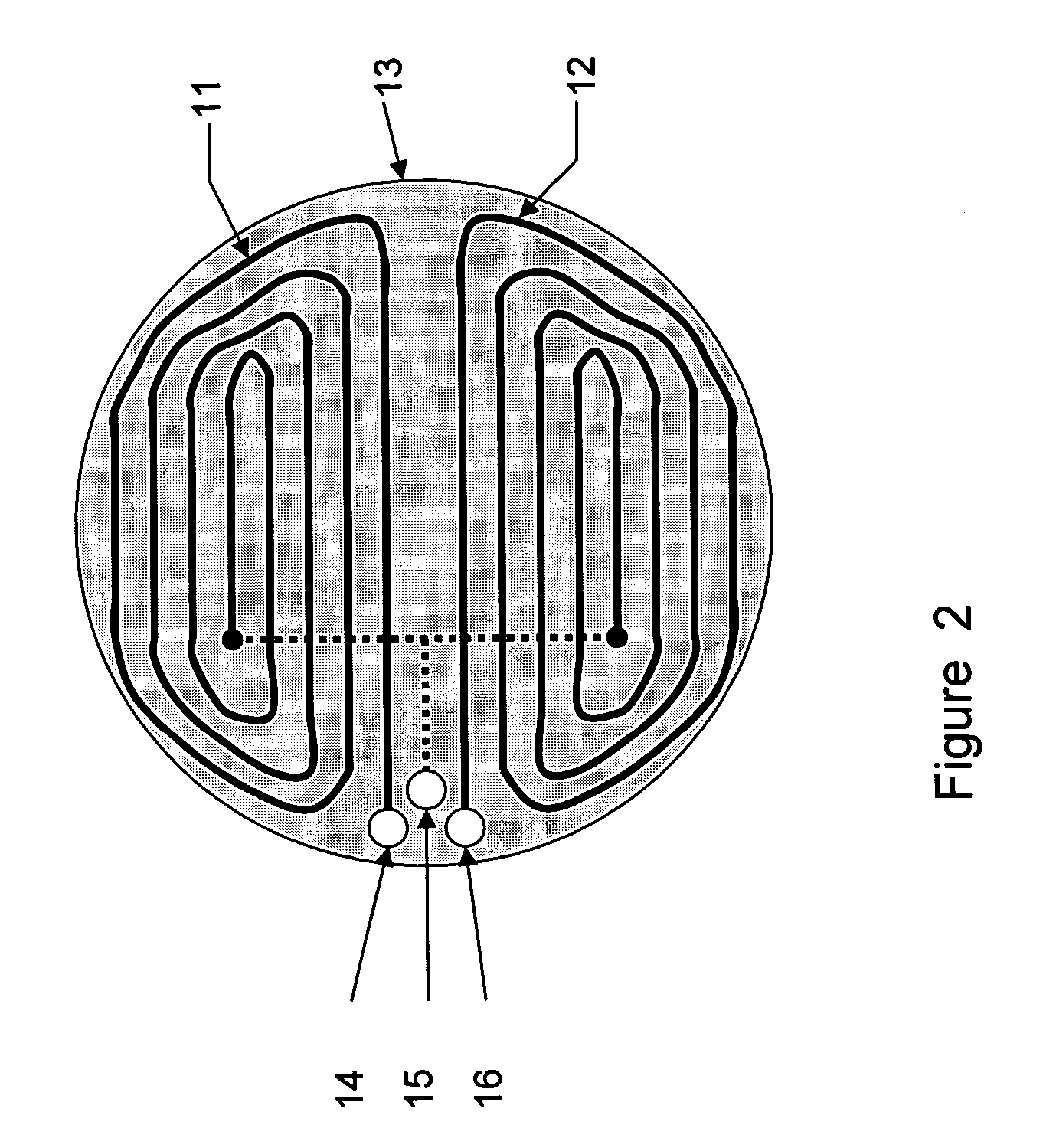Simplified inductive position sensor and circuit configuration
a position sensor and circuit configuration technology, applied in the field of sensor and transducer, can solve the problems of higher cost and labor than design, and achieve the effect of reducing errors and less sensitivity to changes
- Summary
- Abstract
- Description
- Claims
- Application Information
AI Technical Summary
Benefits of technology
Problems solved by technology
Method used
Image
Examples
Embodiment Construction
[0025] A first preferred embodiment of the present invention is shown in FIG. 3, and enables the measurement of rotary motion with the minimum of complexity in both the sensor and the associated electronic circuit. Together with the circuit of FIG. 1, a complete transducer can be constructed with a bare minimum of components, thus providing a simple and inexpensive transducer. As rotary movable member 17 moves along rotary motion axis 21, the impedance of coils 11 and 12 change in response to the measured position along motion axis 21. The movable member is fabricated from a ferromagnetic material, such as a nickel-iron alloy. Alternatively, it can be fabricated from an electrically conductive non-magnetic material, such as aluminum. With a ferromagnetic movable member, the coil impedance changes with position of the movable member due to the permeability of the ferromagnetic material, since the inductance and therefore the impedance of a coil varies approximately in direct proporti...
PUM
 Login to View More
Login to View More Abstract
Description
Claims
Application Information
 Login to View More
Login to View More - R&D
- Intellectual Property
- Life Sciences
- Materials
- Tech Scout
- Unparalleled Data Quality
- Higher Quality Content
- 60% Fewer Hallucinations
Browse by: Latest US Patents, China's latest patents, Technical Efficacy Thesaurus, Application Domain, Technology Topic, Popular Technical Reports.
© 2025 PatSnap. All rights reserved.Legal|Privacy policy|Modern Slavery Act Transparency Statement|Sitemap|About US| Contact US: help@patsnap.com



